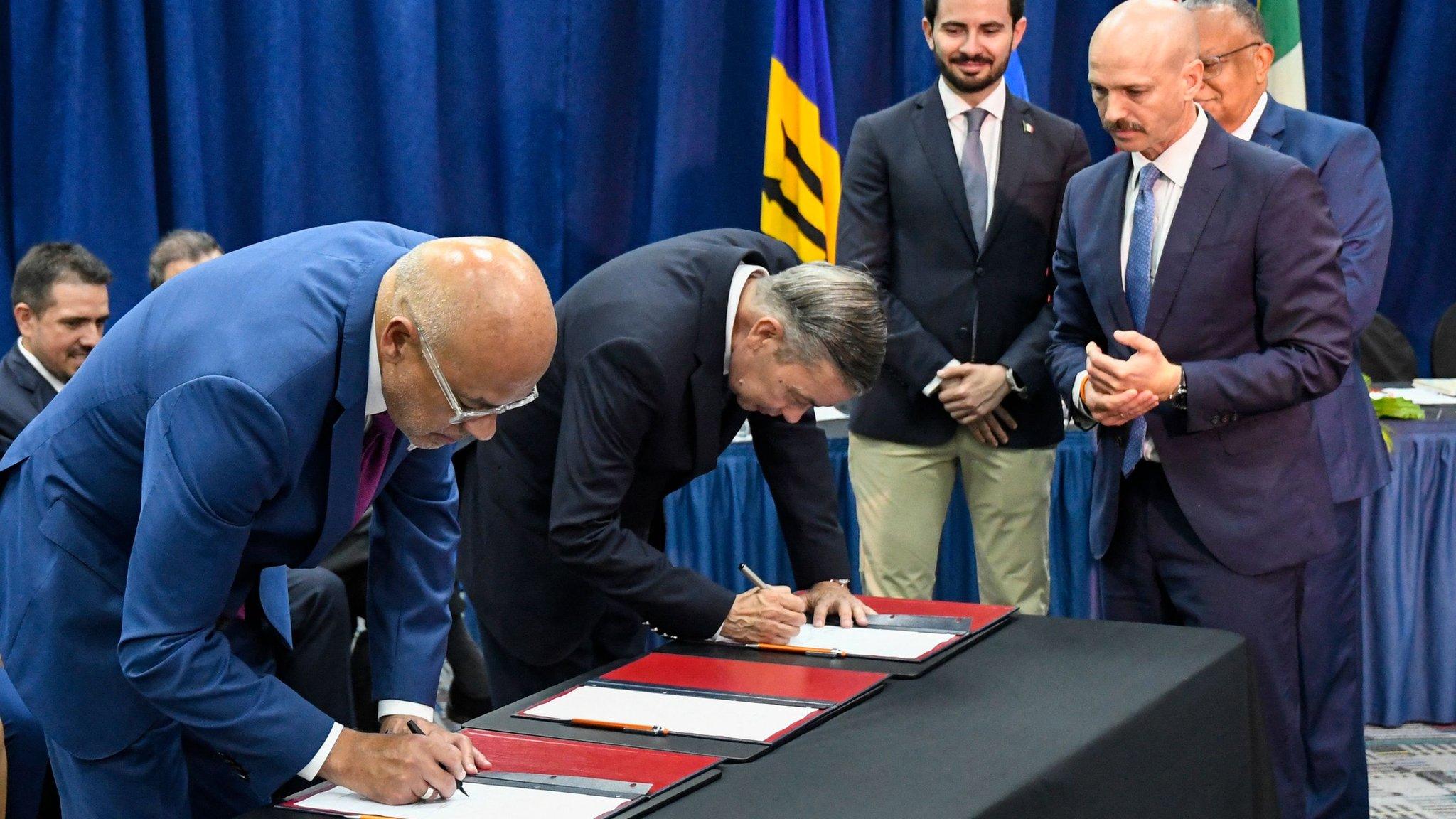Venezuela crisis in brief
- Published
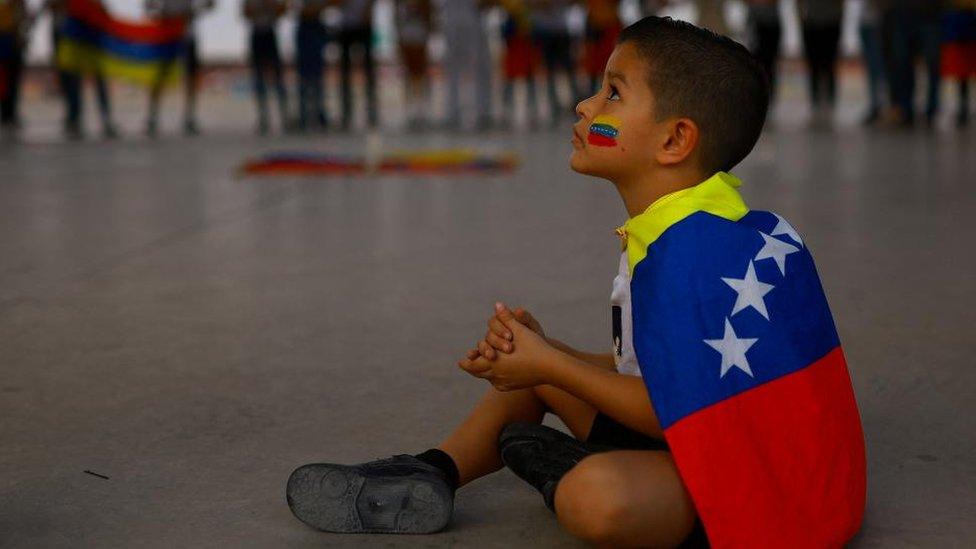
Venezuelans have taken to the streets in their home country and abroad in protest following the election
Tension in Venezuela is running high after a government-controlled electoral authority declared Nicolás Maduro the winner of the presidential election and handed him a third consecutive term in office.
Not only has the election been described as "undemocratic" by independent observers, but the result announced by the National Electoral Council (CNE) has also been dismissed as fraudulent by the opposition.
The European Union, the United States and a number of Latin American nations have refused to recognise the result, calling instead on the CNE to release detailed data from polling stations which the opposition says proves that its candidate, Edmundo González, won by a wide margin.
Anti-government protests have flared up and hundreds of people have been arrested by the security forces, which remain loyal to President Maduro.
Those taking to the streets say they voted for change after a quarter of a century in which Venezuela has been governed by the socialist PSUV party - first under the leadership of Hugo Chávez, then after his death in 2013 by his right-hand man, Nicolás Maduro.
During this time, their party has gained control of key institutions, including the CNE, the Supreme Court and much of the judiciary.
As a result, the role of the president has become much more powerful and the system of checks and balances has been severely weakened.
Not long after Mr Maduro was elected for the first time in 2011, global oil prices plummeted and Venezuela - which relies almost entirely on oil revenue for its income - went into a seven-year recession. Inflation skyrocketed and shortages of basic goods became widespread.
Waves of anti-government protests in 2014 and 2017 fizzled out after a police crackdown.
Millions of Venezuelans left the country to escape economic hardship and political repression. Amid growing discontent, Mr Maduro was re-elected in 2018 in a presidential election widely dismissed as neither free nor fair.
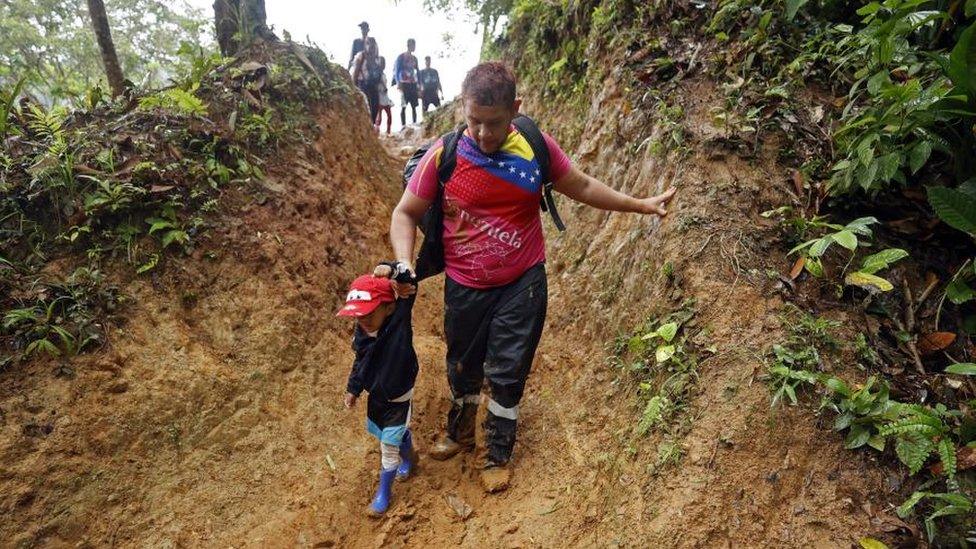
Millions of Venezuelans have emigrated, many braving the dangerous Darién Gap, an expanse of jungle between Colombia and Panama
Venezuela's divided opposition in January 2019 united behind the only major institution where they were still influential: the National Assembly and its speaker, Juan Guaidó.
With the backing of the National Assembly, Mr Guaidó declared himself "interim president". And while more than 50 countries recognised Mr Guaidó as Venezuela's legitimate leader, the military stayed loyal to Mr Maduro and - with the continued support of China and Russia - he remained firmly in charge of the country.
Shortages eased after Mr Maduro relaxed some of the strict foreign currency regulations brought in by Chávez.
However, extreme poverty remains shockingly high and has contributed to more than 7.7 million people leaving Venezuela to seek better lives abroad.
Disillusioned with the failure of Mr Guaidó to seize control, the majority of opposition parties dissolved his "interim government" in December 2022.
In October 2023, they organised a primary to choose a unity candidate to take on Mr Maduro in the presidential election on 28 July 2024.
Former lawmaker María Corina Machado won it by a landslide, despite having been banned by the comptroller-general, an ally of President Maduro, from holding public office.
After her appeal against the ban was rejected, she threw her weight behind ex-diplomat Edmundo González as the unity candidate to take on President Maduro in the presidential election on 28 July.
Opinion polls gave Mr González a wide lead over Mr Maduro going into the polls.
Fearing fraud, the opposition deployed thousands of people as witnesses and observers.
Copies of the voting tallies they provided - which have been uploaded to the internet and independently reviewed -suggest Mr González has won the election by a wide margin.
The Maduro government, however, insists that the result announced by the CNE, which is stacked with its allies, is the only valid one and has accused the opposition of incitement.
It has cracked down on the anti-government protests which have broken out, with the defence minister branding the marches "a coup".
Related topics
- Published30 January 2024
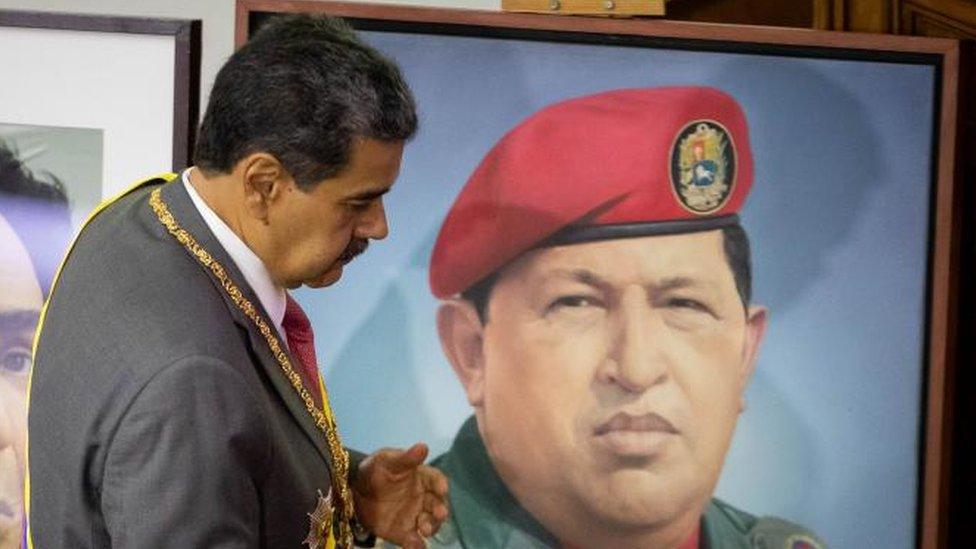
- Published24 January 2024
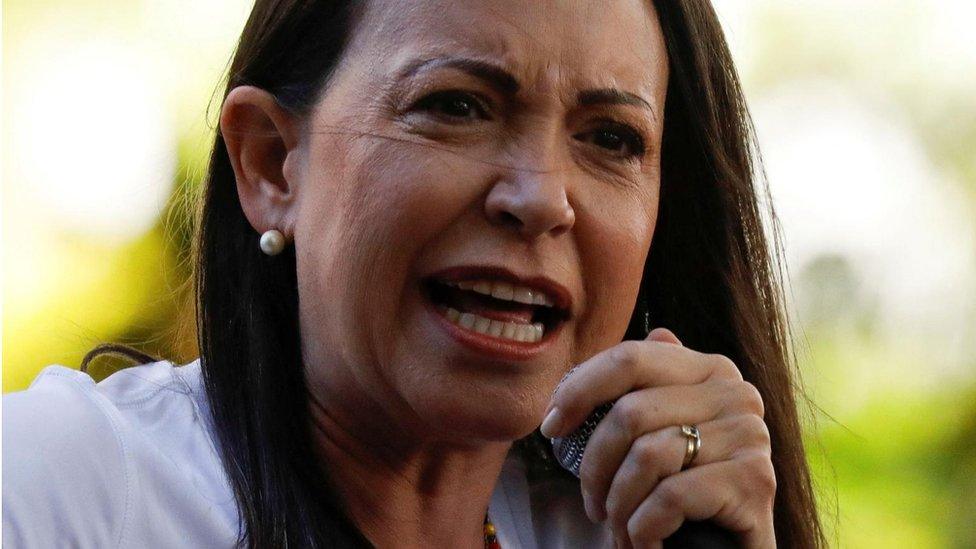
- Published23 October 2023
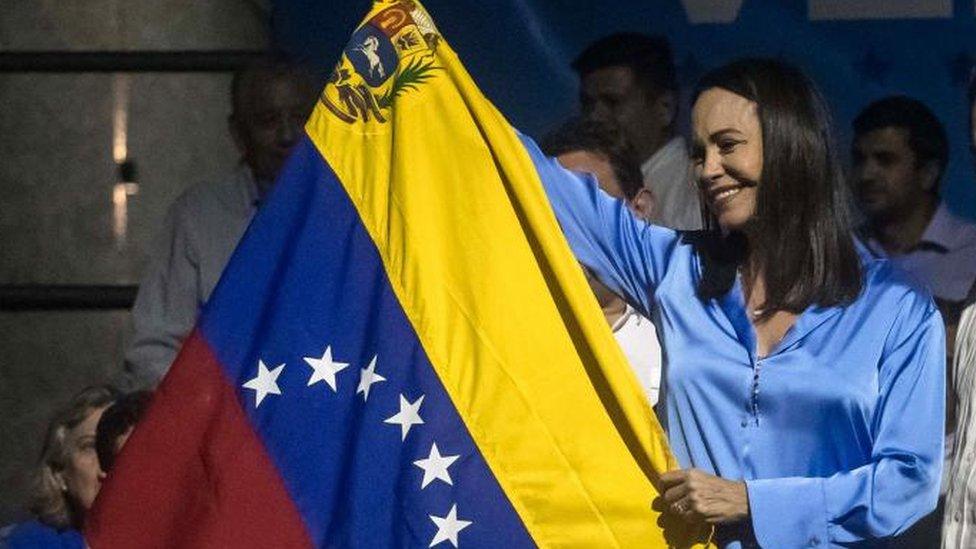
- Published18 October 2023
